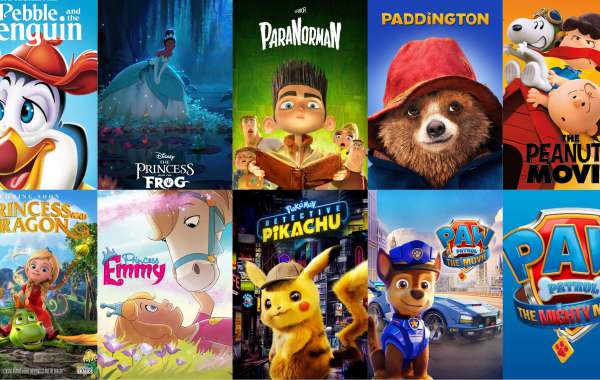Motion pictures are all over the place.
Their accounts, expressions, and scenes are a piece of our way of life.
We as a whole have most loved films, most loved recollections connecting with motion pictures, and at times motion pictures that assist us with characterizing our lives. While you may not consider it, films have most likely enhanced your life.
Films are stories told in a rich medium. Stories are the manner by which we figure out the world. They hold gigantic ability to amaze and amuse; to influence in manners a long ways past diversion. Stories, all around told on film, can influence our perspectives on ourselves and change our viewpoints of our reality. Stories, undeniably, have improved our lives.
Learning is one of the main pieces of life. As a matter of fact, the capacity to learn in a large number of ways is quite possibly of our generally human quality. We learn best when we are submerged in a circumstance, effectively engaged with the educational experience. Films can assist us with learning since they envelop us with a story. In the event that you've at any point hopped or shouted or cried during a film, you've encountered the force of film.
While most consider motion pictures amusement, a redirection or a getaway in light of their very nature they can be substantially more than that. As the past sections show, they probably as of now have turned into a wellspring of learning in your life.
The remainder of this article will furnish you with three explicit ways you can intentionally utilize films to drive your learning and advance your life:
Posing Reflective Inquiries
oExploring Your Mental Filters
oCreating Group Conversation
oAsking Reflective Questions
There are a few general inquiries that can be useful while evaluating a film - whether to reflect by and by or to start a discussion. These inquiries can be utilized with any film and can be, without anyone else, the groundwork of significant learning amazing open doors. These center inquiries include:
oWhat was/were your most loved scene(s) and why?
oWhat did you like/loathe about the film and why?
oIf you've seen the film previously, how was your experience of the film not the same as past viewing(s)? What struck you the equivalent or in an unexpected way?
o What scenes compelled you giggle or cry (if fitting)? Why?
o Which characters, if any, do you relate to here and there?
o What about this film or story helps you to remember your background?
o What on the off chance that anything will you do another way, or contemplate in an unexpected way, since watching the film?
o What knowledge do you acquire from this film?
o What in this film motivates you?
Investigating Your Mental Filters
Your perspective, current considerations, and educational encounters all have an impact by they way you "see" a film.
This is one motivation behind why you can watch a film two times, regardless of whether a couple of days separated, and have a totally different encounter. Your psychological channels are the justification for why you might encounter a film diversely on various viewings. Find more info rdxhd watch online
A portion of your channels are long lasting, in light of your qualities, early encounters and profoundly held convictions. For instance, individuals who experienced childhood in India will have an alternate point of view and hence view the film Gandhi much uniquely in contrast to Americans will. Various channels are to a great extent the purposes behind these unmistakable viewpoints.
Different channels are connected with later occasions and the different jobs you are playing in your life around then. Assuming you saw The Sound of Music after as of late being bereft, your response to Captain von Trapp may be not quite the same as in that frame of mind of this film. These later channels are the primary drivers of remarkable encounters during different viewings of a similar film.
The inquiry "In the event that you've seen the film previously, how was your experience of the film not quite the same as past viewing(s)? What struck you the equivalent or in an unexpected way?" is incorporated to assist you with looking at your channels. Frequently by contemplating these channels, motion pictures can assist you with mirroring your own development and change over the long haul, as well as how current circumstances are forming you.
Making Group Conversation
While you can do the initial two errands without anyone else, I'm speculating you frequently watch films with others, so it's normal to consider having a discussion with others about a film.
Obviously, this happens normally as of now, either with individuals you watched the film with or around the espresso pot when all of you understand you've all seen a similar film.
Since discussions about motion pictures are normal, all I am recommending is that you deliberately broaden or potentially work with the conversation so everybody can take examples and bits of knowledge for their own lives from the fiction you've encountered on film.
This might be just about as straightforward as you interposing inquiries from the intelligent inquiry list into the typical film chitchat, or it very well may be much more purposeful where individuals concur early on to broaden the amusement of the film into the schooling that can be gotten from it. One way or the other, everybody wins!
In the subsequent case, assuming you are driving the discussion, the most effective way to start is to just advise individuals that the objective is to gain from the experience of the film. Tell them that you believe that this should be fun, and urge them to truly pay attention to one another.
Urge them to move toward the discussion with a feeling of request, not of discussion. Discussions for the most part aren't very satisfying when everybody has a similar assessment, so urge individuals to share their considerations, regardless of whether they appear "way out" or not quite the same as the assessments of others. At the point when you set up the discussion that way, you are well en route to an extraordinary trade and much new learning for everybody.
Possible Pointer: Movies are a piece of our lives, whether you watch a few a week or haven't been to the theater in years. Since motion pictures give a rich tactile encounter of a story, they give a great stage to realize when you carve out opportunity to separate illustrations from them purposefully.








